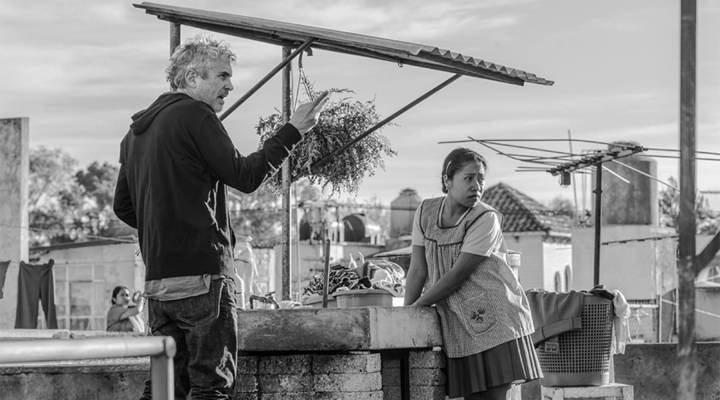
‘Roma’ shines a light on the real lives of domestic workers
‘Roma’ shines a light on the real lives of domestic workers

Brigida Barrios Bautista, a 49-year-old native of Mexico’s southern state of Oaxaca, recently watched the Netflix film “Roma,” and it reminded her of her early years making a living as a domestic worker.
Just like the film’s main character Cleo, Barrios is a member of the indigenous Mixtec community — she first began working for families in Mexico City when she was a teenager. In addition to cooking and cleaning, she took care of the homes’ children, and she was never given a paid day off work, said Barrios.
The film by Oscar winning director Alfonso Cuarón is dedicated to the domestic worker who helped raise him. There are some 2.4 million domestic workers across Mexico, according to the country’s Sindicato Nacional de Trabajadores y Trabajadoras del Hogar or National Domestic Workers’ Union. Labor advocates in Mexico are using “Roma” to ask for improved conditions for real-life domestic workers, like Barrios. “I feel like I was the person cleaning that house in the movie,” she said.
“Roma” was screened in Mexico City ahead of its mid-December release on Netflix and seats sold out weeks in advance. In the U.S. critics overwhelmingly praised “Roma,” including the Wall Street Journal’s veteran reviewer Joe Morgenstern, who called it “one of the best movies I’ve ever seen.”
Adela Gonzalez Gonzalez is one of hundreds of domestic workers in Mexico who watched a screening of “Roma.”
The National Domestic Workers’ Union has organized screenings and discussion forums for college students and members of Congress, said Sofia Pablo, the union’s finance secretary. But the work conditions they’re seeking to highlight differ from those shown in “Roma.” Physical abuse and sexual harassment are common, and most full-time workers don’t receive benefits or savings toward a pension, said Pablo.
The union’s goals seem modest, at least in the short-term: They want the federal government to formally recognize an eight-hour work day for domestic workers.
“Domestic workers aren’t even considered workers,” said Pablo. “The employer and the government don’t recognize that the home where we work is a place of work.”
Adela Gonzalez Gonzalez, a 51-year-old native of the central Mexican state of Hidalgo, watched “Roma” at a recent screening for domestic workers. She moved from the countryside to Mexico City as a teenager to look for work and send remittances to her family to help her siblings finish school, she said. Gonzalez got little time off from work, and could rarely afford to visit home. She settled with one family for 23 years, but said she was sad when the couple divorced.
“My former boss suffered, and I suffered seeing her go through pain like that.”
Gonzalez is grateful for a film focused on the life of people like her, but she said no single movie can depict the lives of an entire class of workers.
“There are a lot more stories about us to tell.”
There’s a lot happening in the world. Through it all, Marketplace is here for you.
You rely on Marketplace to break down the world’s events and tell you how it affects you in a fact-based, approachable way. We rely on your financial support to keep making that possible.
Your donation today powers the independent journalism that you rely on. For just $5/month, you can help sustain Marketplace so we can keep reporting on the things that matter to you.


















